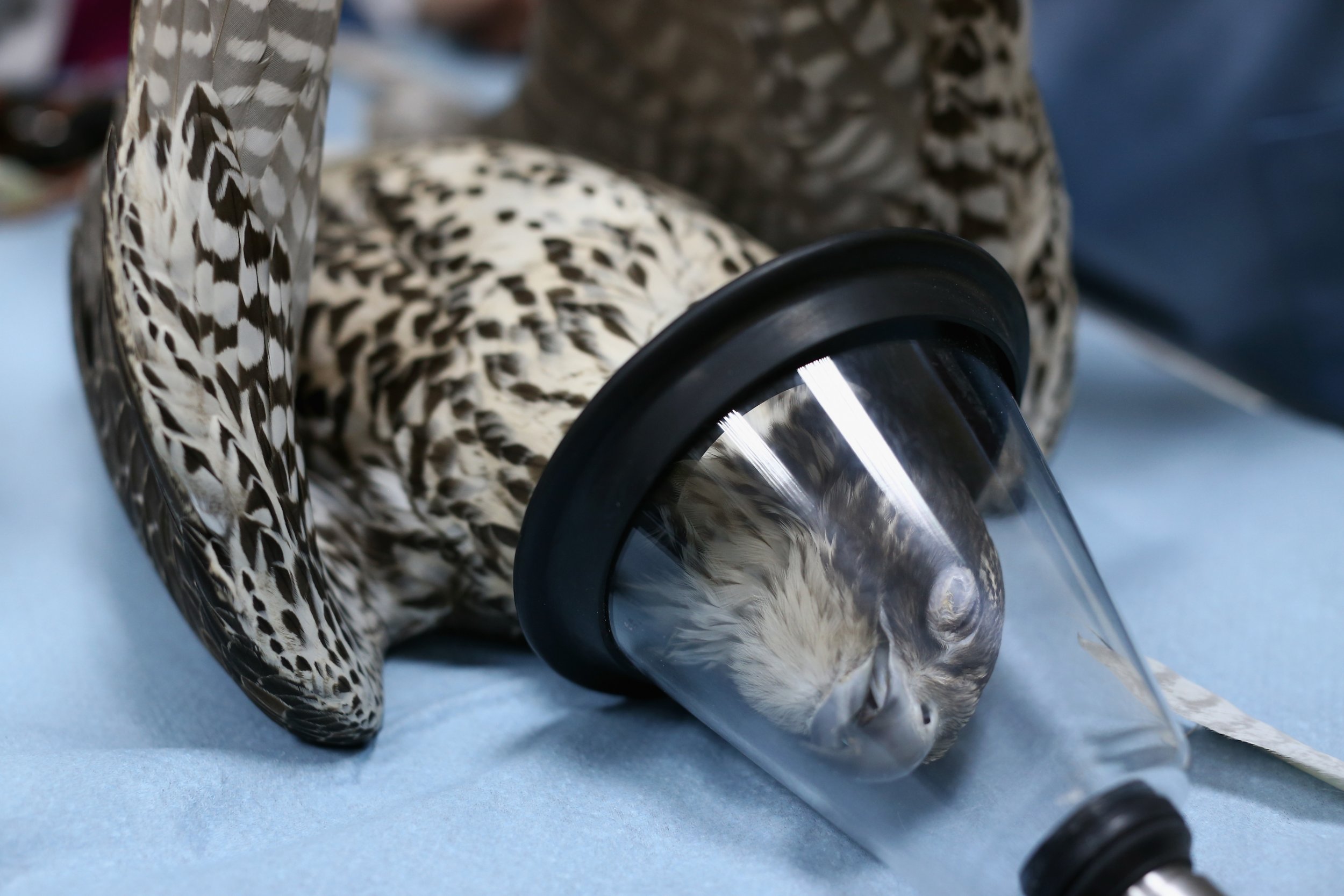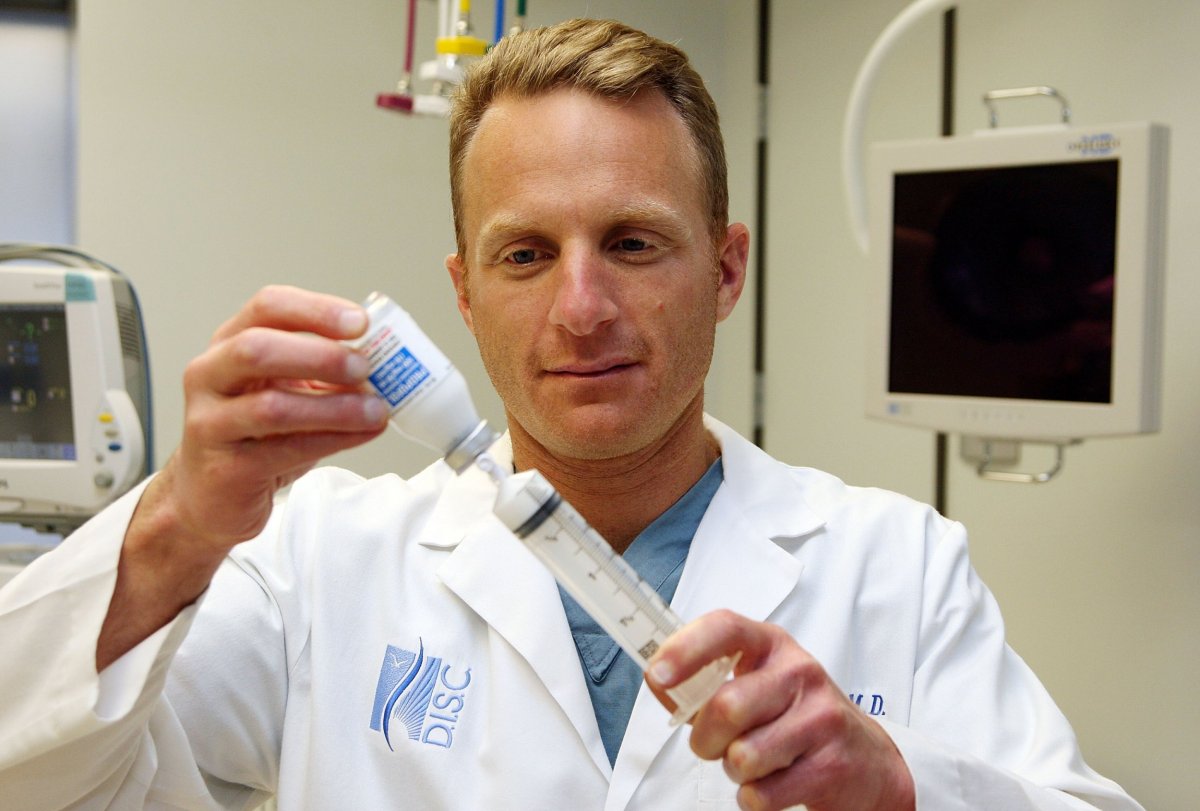
If you're planning to have major surgery soon, you might not want to read this next sentence. Scientists don't actually know why general anesthesia works—though some scientists in Australia think they might be one step closer to the answer.
We do know the basics: breathe in, get knocked out. (Another common option is to have the drugs introduced using an intravenous line.) The "knocked out" part happens because the general anesthesia forces your brain cells to communicate with each other less.
If that sounds vague, too bad. That's all we know for sure. Or, as Mayo Clinic anesthesiology professor Dr. Bill Perkins put it in Scientific American, "precisely how inhalational anesthetics inhibit synaptic neurotransmission is not yet fully understood." But given the chemical properties of anesthetics, a good guess would be that they change the way certain proteins in the walls of a nerve cell work, he notes.
Since its first use in the 1840s, general anesthesia has been "one of the greatest medical mysteries of our time," as io9 explained back in 2014. But scientists at the Queensland Brain Institute, which is affiliated with the University of Queensland did some experiments that might shed some light on what exactly anesthetics are doing in our brains. They published their findings in Cell Reports on Thursday.

The researchers used brain cells from rats and from fruit flies for their experiments. If it seems odd that fruit fly brains are being used in place of human ones, it's actually not that weird. Scientists use fruit flies to stand in for humans in these kinds of studies pretty often; and, as ScienceAlert reported, humans have this protein too.
What they found is that common anesthetics like propofol and etomidate appear to prevent a protein called syntaxin1A from moving around the plasma membrane of a cell. Researchers already knew that mutations in syntaxin1A made some fruit flies more resistant to anesthesia, but they weren't sure why. This paper shows that it might be because the anesthesia messes with proteins' ability to come together and form something called a SNARE complex. These complexes help tiny pockets of chemicals bind to the membranes of nerve cells—which is what has to happen if a nerve cell wants to send signals to other nerve cells with molecules called neurotransmitters. No SNARE, no signal.
If we know exactly what anesthesia is doing, it might help us explain some of the side effects people experience when they wake up, the study authors said in a press release.
However, while the mechanism they've found is a plausible explanation, the authors note more research would need to be done to prove that what they've found in flies is what's really happening in humans. Until that happens, the mystery of general anesthesia will continue to live on.
Uncommon Knowledge
Newsweek is committed to challenging conventional wisdom and finding connections in the search for common ground.
Newsweek is committed to challenging conventional wisdom and finding connections in the search for common ground.
About the writer
Kate Sheridan is a science writer. She's previously written for STAT, Hakai Magazine, the Montreal Gazette, and other digital and ... Read more
To read how Newsweek uses AI as a newsroom tool, Click here.








